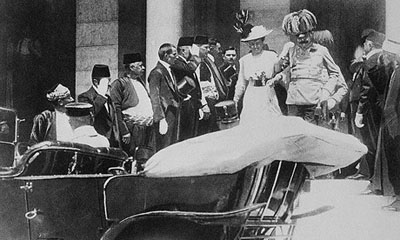 Tyler Cowen points out that Greece is once again in crisis, this time over a dispute about shutting down its public broadcasting outlet:
Tyler Cowen points out that Greece is once again in crisis, this time over a dispute about shutting down its public broadcasting outlet:
The current Turkish crisis was set off by a dispute over a public park, and the recent demonstrations in Brazil seem to have been prompted by a 7% hike in bus fare prices, which is about ten U.S. cents….Many deconversions from religion, or from fandom, or even from marriage, work the same way. Big lies are told and those lies inflict some damage. The institution in question soldiers on. A bit later, an apparently smaller slight or problem brings the whole thing crashing to the ground, precisely when things appeared to be getting better.
I’m not saying it always runs that way, only that it is a very common path. Furthermore the steepest period of decline is very often when people are too preoccupied with coping to make the major adjustment.
The bottom line is that one should not dismiss the importance of small events, especially these days.
This is one of the things that makes foreign policy forecasts so inherently unreliable. Sometimes a small event is just a small event, and it peters out after a few days or weeks. Other times it’s like a snowball rolling downhill. Franz Ferdinand wasn’t that important to the future of the Austro-Hungarian empire, after all.
In any case, this is how I’ve always viewed the euro crisis ending. Things will roll along, with patch after patch calming things down, until someday a metaphorical archduke is assassinated. At that point, either everyone finally gets scared enough to really do something about the fundamentals, or else the eurozone spins apart. But the when, how, and whether are pretty much impossible to predict.

















